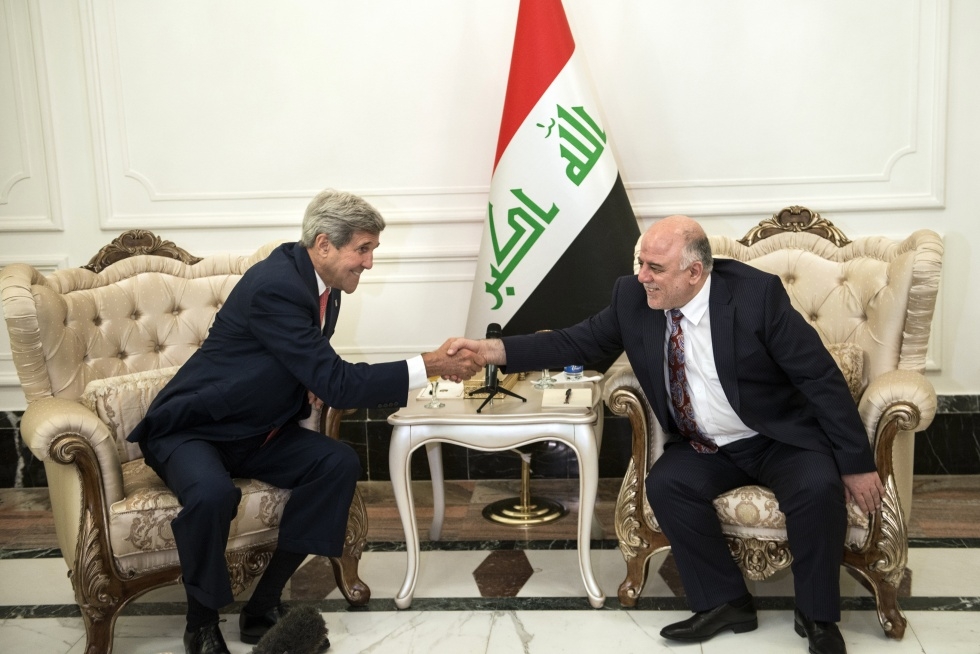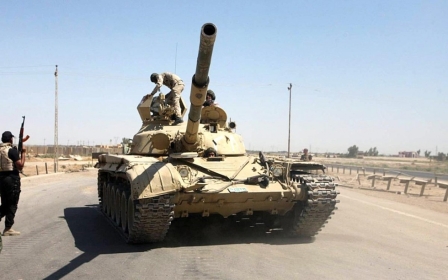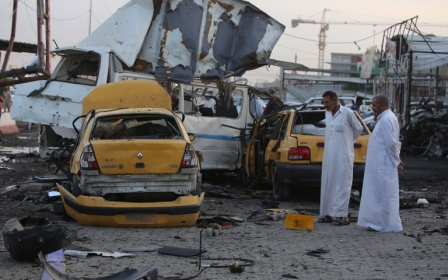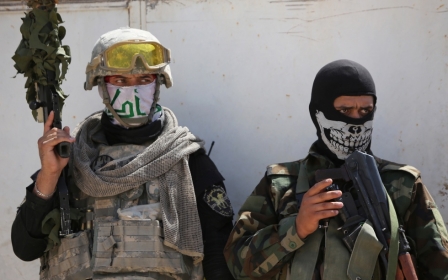Iraq makes 'positive' security steps as violence rages

US Secretary of State John Kerry on Saturday congratulated Iraq after lawmakers there finally approved new defense and interior ministers, following weeks of delay.
Khaled al-Obaidi of the Iraqi parliament's Sunni Arab Itihad al-Quwa al-Wataniyah bloc was voted defense minister, and Mohammed al-Ghabban of the Shiite Badr bloc was picked for the interior post.
"We had a very positive step forward in Iraq today," Kerry said.
"These were critical positions to be filled, in order to assist with the organizing effort with respect to (the Islamic State group). So we’re very pleased."
"We congratulate Prime Minister Abadi and we look forward to working with them as we continue to grow the coalition and move forward," Kerry said.
Iraqi lawmakers approved defence and interior ministers on Saturday, filling the key posts after weeks of delay as security forces battle IS.
The international community hopes the government of Prime Minister Haidar al-Abadi will unite divided Iraq, whose forces are struggling to regain ground from the IS group despite US-led air strikes.
Baghdad has been rocked by car bombs that have killed dozens, although Washington insists the capital is not in danger of falling to the militants, who would have to make significant advances to even try to seize the city.
Who are the new ministers?
Khaled al-Obaidi, a Sunni who was named defence minister, was a senior officer in the air force of ousted dictator Saddam Hussein who specialised in engineering.
He hails from the northern city of Mosul -- the first to fall to IS-led militants in a June offensive that overran much of Iraq's Sunni Arab heartland.
Key to pushing IS back will be for the government to gain some level of support from the Sunni Arab community, many of whom are deeply mistrustful of the Shiite-led government and view the armed forces as an instrument of repression.
The new interior minister, Mohammed al-Ghabban, is a member of the Shiite bloc Badr.
His selection puts the interior ministry, which is responsible for the vast majority of the country's security forces, under the effective control of Hadi al-Ameri, commander of the affiliated Badr militia.
The Iran-backed militia -- now one of the main Shiite groups fighting IS -- was involved in Iraq's Sunni-Shiite sectarian conflict, which peaked in 2006-2007 and left tens of thousands dead.
The appointments mark the first time in more than four years that the two positions have not been held by acting ministers.
MPs also signed off on a deputy premier, five other ministers and a minister of state.
MPs approved the majority of the cabinet on September 8, but Abadi asked for another week to fill posts, including the security ministries.
Abadi's first candidates were rejected, leaving the key positions unfilled.
An improvement on Iraq's last government
However, even the late approval of the security ministers is an improvement on Iraq's last government, in which posts were filled on an interim basis for prime minister Nuri al-Maliki's entire second term.
Abadi faced major international pressure, especially from the United States, to form an inclusive government that could unite Iraq's sharply divided religious and ethnic communities.
The new cabinet's makeup is not a major departure in terms of sectarian or ethnic composition from its predecessor, and the policies the government pursues will determine whether Iraq makes progress on reconciliation.
IS gains in recent weeks in the vast province of Anbar, west of Baghdad, prompted some officials to warn that the entire region could fall.
An estimated 1.8 million Iraqis have been displaced by violence since the beginning of the year, as the country faces other enormous challenges ranging from woefully lacking basic services to widespread corruption.
IS has been kept from reaching Baghdad in force and would face major challenges if it tried to occupy part of the city, but is still able to carry out deadly bombings with impunity.
On Friday and Saturday, 10 air strikes targeted IS in Iraq, including five near the strategic Mosul Dam, north of Baghdad, the US military said.
The UN Security Council on Friday unanimously called for increased support for the Baghdad government.
Middle East Eye propose une couverture et une analyse indépendantes et incomparables du Moyen-Orient, de l’Afrique du Nord et d’autres régions du monde. Pour en savoir plus sur la reprise de ce contenu et les frais qui s’appliquent, veuillez remplir ce formulaire [en anglais]. Pour en savoir plus sur MEE, cliquez ici [en anglais].




